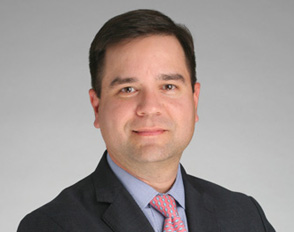Ohio Supreme Court Issues Opinion in Blackstone v. Moore – The First Cornerstone in the DMA v. MTA Supremacy Debate
On December 13, 2018, the Ohio Supreme Court issued its slip opinion in the case of Blackstone v. Moore (Slip Opinion No. 2018-Ohio-4959). The gist of this case focuses on what constitutes a “good” reference to prior severed interests or defects contained in the chain of title under Ohio’s Marketable Title Act (the “MTA”) (R.C. 5301.47) sufficient to preserve those interests. However, Justice DeGenaro’s concurring opinion provides critical insight into how the Court may decide a burgeoning debate: is the more specific Dormant Mineral Act (R.C. 5301.56) the exclusive statutory remedy governing severed oil and gas interests? Our takeaway: the Ohio Supreme Court appears to be signaling that the more specific DMA (which was an amendment to the MTA) will be the exclusive statutory remedy to solve dormant oil and gas disputes, reserving application of the MTA for other “interests, claims or charges.”
First, the majority opinion in Blackstone sets out a bright line rule regarding what type of reference in the chain of title is sufficient to preserve an interest under the MTA. Justice DeGenaro cautions in her concurring opinion, “although this case happens to involve a mineral interest – more specifically, an oil and gas royalty interest – the result we have reached did hinge on the nature of the interest.” Under that lens, the Supreme Court clarified application of the MTA. Under the MTA, record marketable title shall be subject to “[a]ll interests and defects” created in the chain of title, but that general references and recitals will not be sufficient to preserve that interest, “unless specific identification be made therein of a recorded title transaction which creates such interest.” The Court held that the “specific identification” requirement is satisfied if a reference in subsequent deeds identifies (1) the type of interest created (i.e., a right-of-way, or access to a natural spring); and (2) to whom the interest was granted (i.e., the names of the grantees), the interest is preserved in record title. No recording references necessary.
But critical insight in this opinion for those practitioners, landowners, and operators following the last six years of DMA jurisprudence comes in Justice DeGenaro’s concurrence. The backdrop is this: surface owners hoping to reclaim severed mineral interests have filed quiet title actions all across southeast Ohio saying essentially this: (1) I’ve successfully pursued the 2006 DMA proceedings to abandon prior severed mineral interests, so please quiet title to the minerals in my favor; and (2) alternatively, and if for some reason there are defects in my 2006 DMA proceedings, or the actual “holders” of the mineral interest have filed notices of preservation, all of that is moot because the MTA already applied to automatically “extinguish” this interest years ago anyway, so, again, please quiet title in my favor. Use of the DMA and the MTA has become a two-punch combo. Both have also been asserted as affirmative defenses. Blackstone is sounding the alarm on the continued use of the MTA as a sword or as a shield in relation to oil and gas ownership disputes.
The concurrence begins with Corban. Corban v. Chesapeake Exploration, L.L.C., 149 Ohio St.3d 512 (2016). In 2016, the Supreme Court in Corban issued its first major review of the original 1989 version of DMA holding that “dormant mineral interests did not automatically pass by operation of law to the surface owner.” This concept was commonly referred to as “automatic abandonment.” The 2006 amendment to the DMA required surface owners to pursue a series of notices and statutory procedures to “reclaim” an interest. Corban further recognized that the “the General Assembly again amended the Marketable Title Act in 1989 which it enacted the Dormant Mineral Act . . . to provide a method for the termination of dormant mineral interests and the vesting of their title in surface owners.”
In her concurrence in Blackstone, Justice DeGenaro focuses on the concept of specific v. general statutes, and which is controlling, and asks the question: if the DMA is the specific statute begotten from the general MTA, and we held in Corban that the DMA does not permit “automatic abandonment,” how could the more general MTA apply to provide “automatic extinguishment” of severed mineral interests? Inclusion of an “MTA Claim” in quiet-title actions has been a catch-all, hail-Mary, back-door attempt to bring us back to the pre-Corban era of “automatic abandonment” of severed mineral interests (although the MTA calls for “extinguishment” of interests as opposed to “abandonment”). This pleading practice ignores the heart of Corban. The Supreme Court reviewed years’ worth of appellate cases, legislative histories, briefs, amici briefs, etc., and said: surface owners, you can’t automatically “deem abandoned” anything without first having strictly complied with the process laid out by the 2006 DMA. Significantly, there is no process in the MTA. “The fact that the legislature amended the more general Marketable Title Act to include the Dormant Mineral Act, which provides a distinct process specifically for the termination of mineral interests, strongly suggests that the Dormant Mineral Act should be the controlling law and the exclusive remedy for this discrete class of real-property interests.”
The DMA v. MTA debate was not raised as a proposition of law in Blackstone. In the near term, we expect continued claims seeking extinguishment of severed oil and gas interests under the MTA. But it’s only a matter of time before this issue is squarely before the Court. Blackstone gives us clues as to how we should be thinking about the outcome.
For more information about Blackstone, or for a copy of the slip-opinion, and additional insights as to how the DMA, MTA, and other regimes impact your interests in the Utica, contact the Energy Group at Dickie, McCamey & Chilcote, P.C.
 John R. Seeds 412-392-5349 jseeds@dmclaw.com |
 Anthony W. Jesko 412-392-5545 ajesko@dmclaw.com |
 Barbara Y. Strnad 412-392-5430 bstrnad@dmclaw.com |
